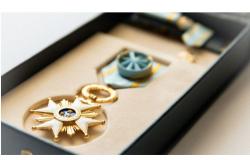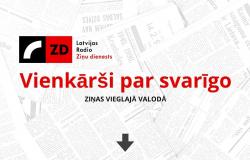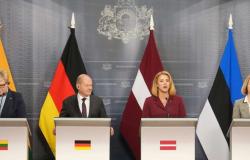By 2035, Latvia must ensure that no more than 10% of annual household waste is buried in landfills. This is an ambitious but not impossible goal. Accordingly, everyone must work together to replace the linear economy at all levels with circular economy principles, extending or giving new life to things.
The linear economy assumes that the product’s “life cycle” is limited to production, consumption and, finally, disposal of waste. The circular economy provides for the production, consumption, sorting, collection, processing, production, etc. of the product. Therefore, the product becomes a resource after its use, not waste, as a result, it does not end up in a landfill for a long time.
You should be aware that absolutely every citizen is a waste generator, but by implementing new practices in daily life, you can significantly reduce the amount of waste and its impact on the environment, for example by sorting. However, proper waste sorting is by no means the only way to reduce the amount of household waste to be buried. Before discarding, residents are invited to extend the life of things by repairing them, reusing them, finding another use for them, giving them to friends or donating them if they are in good condition. On the other hand, in case of disposal, we encourage you to use containers suitable for a specific type of waste. Residents can ask their municipality or their waste manager about containers and recycling options. Useful information about waste sorting and recycling options can be found on the website šarioviegli.lv
It is easiest to influence the habits that create plastic, food and textile waste. So, for example, in order to reduce the waste of single-use plastic bags and packaging, residents are invited to bring their own reusable bags and refillable containers to the store.
To minimize food waste, you can plan your meals and prepare a shopping list before going to the store. Don’t buy more than you need and cook as much as you can eat. It should be noted that 53% of food waste in the European Union is generated directly by households. For example, in Latvia in 2020, one resident generated 108.77 kg of food waste. The goal for 2030 is to achieve 76.14 kg of waste per inhabitant.
Textiles are easy to find new uses for, and can also be donated and recycled. However, even when shopping, residents are invited to think about whether a new product is really necessary. The data of 2018 show that on average one resident of Latvia consumed approximately 17 textile goods (12 new and 5 used), while in 2021 – approximately 19 textile goods (14 new and 5 used). Unfortunately, in 2021, a total of 317 tons of textile waste were buried in landfills.
The involvement of citizens is far from the only factor in the direction of waste reduction, but it is very important – that is why it is important for everyone to understand and be aware of their responsibility, making their choices, shopping, creating smaller and smaller amounts of waste and sorting the generated waste thoughtfully.






